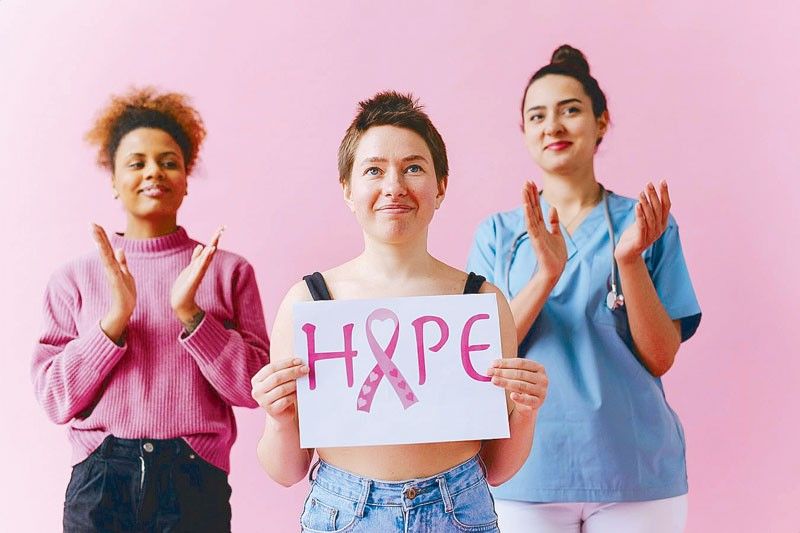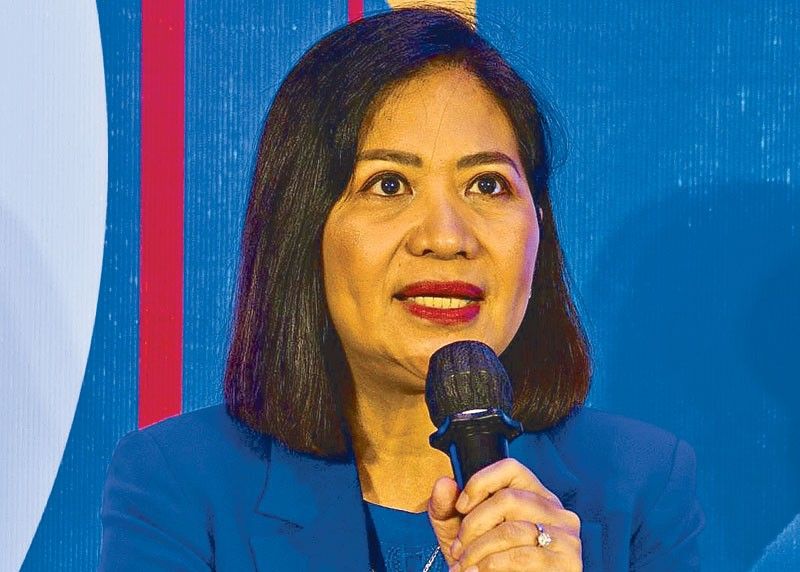Making cancer care innovation accessible to everyone


Is cancer really no longer a death sentence? For patients who can afford the innovative treatment options available, yes! But for those who can’t, the future can look bleak.
To further address this burning question, MSD in the Philippines’ Hope From Within cancer advocacy campaign recently hosted a media forum, titled “Making Cancer Care Innovation Accessible to Every Juan,” at Shangri-La The Fort.
Hosted by broadcast journalist and health advocate Nina Corpuz, the event brought together local and foreign health experts such as Philippine Society of Medical Oncology president Dr. Rosario Pitargue, and medical oncologists Dr. Howard Jack West from the US, Dr. Alesha Thai from Australia, and Dr. Joline Lim from Singapore; AnaKalusugan Party-List Rep. Ray Reyes, and cancer patients Engr. Emer Rojas and Jojo Flores to discuss how cancer innovations and resource-appropriate interventions can help close the cancer-care gaps in the country.
The forum also spotlighted proper documentation and funding of the National Integrated Cancer Control Act (NICCA), which can help improve access to earlier diagnosis and more efficient treatment to improve patient outcomes and survivorship.

The burden of cancer care in PH
Finding out that you have cancer can be quite overwhelming. Disbelief is common. Other emotions soon follow.
Cancer is a major public health concern and can be a significant economic burden for Filipinos leading to financial catastrophe.
Based on the Global Cancer Statistics 2020, cancer is the second leading cause of death in the Philippines.
“The first one is still cardiovascular (ischemic heart disease),” noted Dr. Rosario Pitargue, president of the Philippine Society of Medical Oncology. “In terms of leading cancer sites, the top five in both sexes are breast, colon, lung, liver and prostate.”
In terms of mortality, lung cancer tops the list.
What has led to this?
“Smoking is the leading cause of lung cancer,” said Dr. Pitargue. “About 1/4 of Filipinos 16 years old and above are smokers. And there’s always the stigma that once a patient is diagnosed with lung cancer, it’s already a death sentence. And so, most of them don’t seek further cancer treatment.”
The reason?
“The financial capacity of the patient,” lamented the amiable doctor. “We know for a fact that our healthy system is still not as strong as First World countries.”
Although there are treatment options available to help patients fight the disease, including surgery, radiation therapy, and innovative treatments such as immunotherapy and targeted therapy, they’re too expensive for ordinary Pinoys.
These treatments can also help address other cancers like head and neck, and the triple negative breast cancer (TNBC) which is considered an aggressive cancer because it grows quickly, is more likely to have spread at the time it’s found, and is more likely to come back after treatment.
“Some cancer patients would rather die than leave their families with debt because of the expensive treatments,” added Dr. Pitargue. “We hope that NICCA would address all that.”

A call for solidarity against cancer
The NICCA Act aims to improve cancer prevention, survivorship and access to cancer care for Filipinos. Its goal is to make cancer services and care accessible to all by institutionalizing interdisciplinary care and promoting an equity-based, whole-of-government approach.
Among the promises of NICCA is the establishment of a Cancer Assistance fund that will provide financial assistance for the screening, diagnosis, treatment and rehabilitation of financially challenged patients. Add to that, the expansion of benefits of cancer patients under PhilHealth.
To ensure this landmark health legislation is properly implemented and adequately funded, a Call for Solidarity Against Cancer was drafted by patient groups and cancer advocates to appeal to the government to increase funding and progressively implement the provisions of the NICCA, “mindful of the need to act with urgency, because cancer does not wait.”
Cancer patients need timely support and interventions if they are to beat cancer and have healthier, more productive and brighter futures.
Once these needs are met, only then can we say that, indeed, cancer is no longer a death sentence.



















